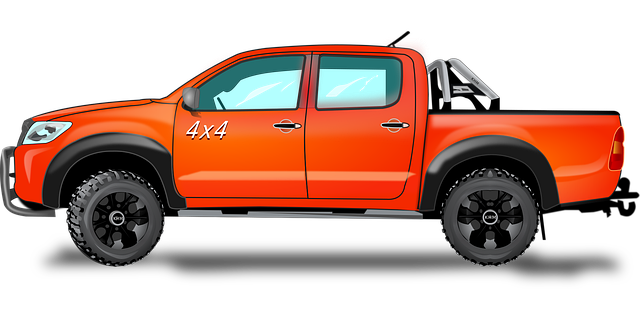Brownville fleet operators must prioritize regular truck brake pad replacement for safety and cost-efficiency. Brake pads are vital for stopping trucks, and adhering to manufacturer recommendations ensures optimal performance and extends braking system lifespan. Ignoring timely replacements can lead to reduced braking efficiency and dangerous driving situations. When replacing pads, drivers have options: organic for everyday use, semi-metallic for enhanced performance, and metal for heavy-duty applications.
Truck brake pads are vital safety components, ensuring smooth and controlled stops. This article explores their functionality, types, and wear signs. We dive into a case study of the Brownsville fleet, showcasing efficient maintenance practices for large fleets. Additionally, we offer tips on choosing the right pads, maintaining performance, and avoiding common mistakes during replacement. Learn how to optimize your truck’s braking efficiency with these essential insights, focusing on both safety and cost-effectiveness, especially considering the Brownsville fleet experience.
- Understanding Truck Brake Pads: The Backbone of Safety
- – What are truck brake pads and their function?
- – Types of brake pads: organic, semi-metallic, and metal.
Understanding Truck Brake Pads: The Backbone of Safety

Truck brake pads are a critical component for any fleet operator, including those in Brownsville. They serve as the backbone of safety, ensuring that vehicles come to a stop efficiently and effectively. Regularly replacing these pads is essential for maintaining optimal performance and preventing accidents. Brownsville fleet managers should keep a close eye on their truck brake pad replacement schedule, adhering to manufacturer recommendations and industry best practices. This proactive approach not only enhances safety but also extends the life of the vehicle’s braking system, ultimately saving costs in the long run.
– What are truck brake pads and their function?

Truck brake pads are essential components in ensuring the safety and performance of commercial vehicles, such as those found in Brownsville fleet operations. These pads play a critical role in slowing and stopping trucks by applying pressure to the vehicle’s brakes, converting kinetic energy into heat. Regularly replacing truck brake pads is crucial for maintaining optimal braking efficiency, preventing accidents, and prolonging the lifespan of the overall braking system.
Brownsville fleet managers should pay close attention to brake pad replacement intervals recommended by manufacturers, as these can vary based on factors like driving conditions, vehicle weight, and usage patterns. Ignoring timely replacements could lead to reduced braking performance, increased wear on other brake components, and potentially dangerous driving situations. Therefore, integrating prompt brake pad replacements into fleet maintenance routines is a vital step towards ensuring the safety of both drivers and other road users.
– Types of brake pads: organic, semi-metallic, and metal.

When considering Brownsville fleet truck brake pad replacement, understanding the different types of brake pads available is key. Organic brake pads are a common choice due to their low dusting and quiet operation, making them ideal for everyday driving. On the other hand, semi-metallic pads offer better heat dissipation and longevity, suitable for more demanding driving conditions. Metal pads, while durable and capable of withstanding high temperatures, tend to produce more noise and leave behind more dust.
Each type has its pros and cons, catering to various driver preferences and usage scenarios. For regular maintenance and quiet rides, organic pads might be the best fit. Semi-metallic pads are excellent for those needing superior performance and longer lifespans. Metal pads are suited for heavy-duty applications where durability is paramount.
Brownville fleet owners can ensure safe and efficient operations by staying informed about truck brake pad replacement. Understanding the different types of brake pads available and their unique properties is key. Regular maintenance and timely replacements not only enhance safety but also extend the life of your vehicles. Remember that well-maintained trucks are a testament to responsible fleet management, fostering a culture of safety on the road.



